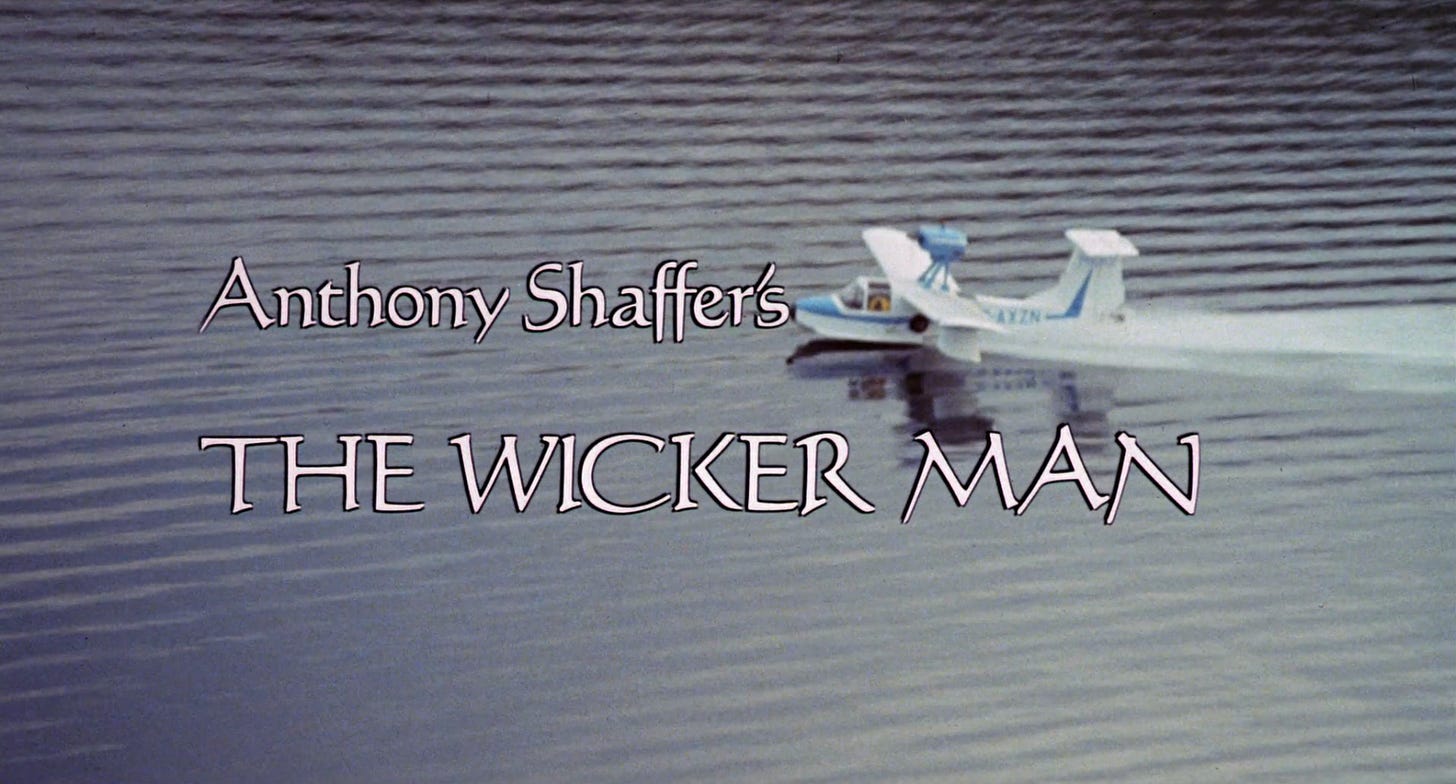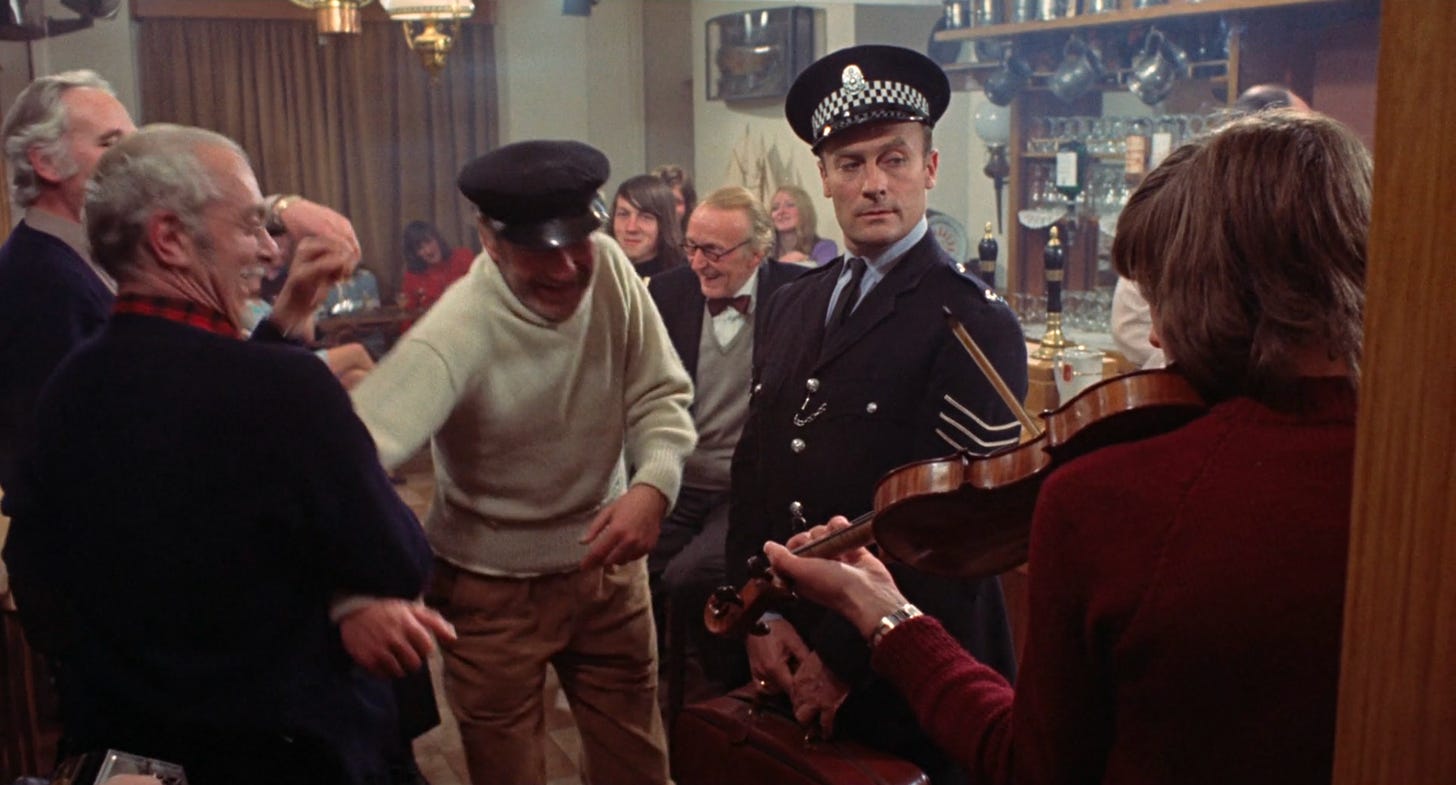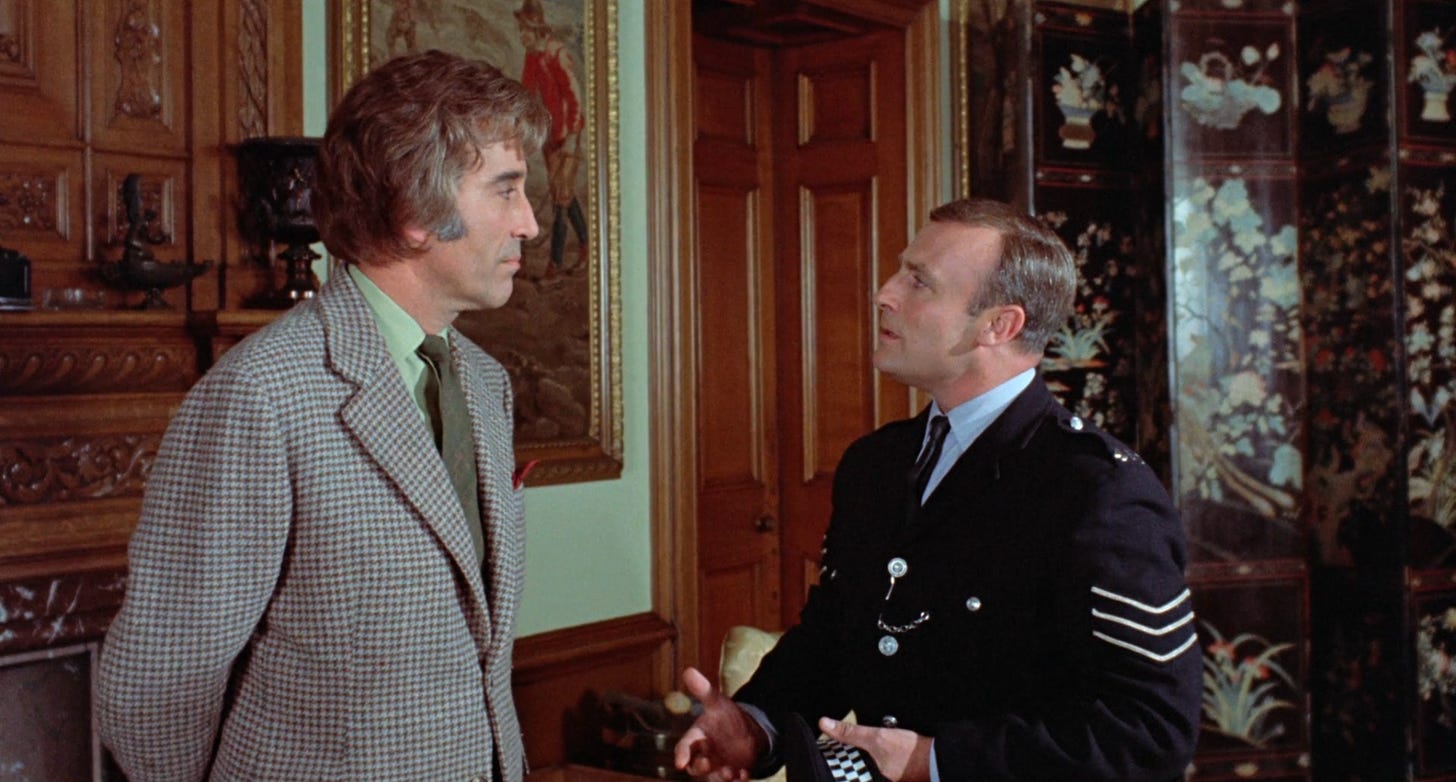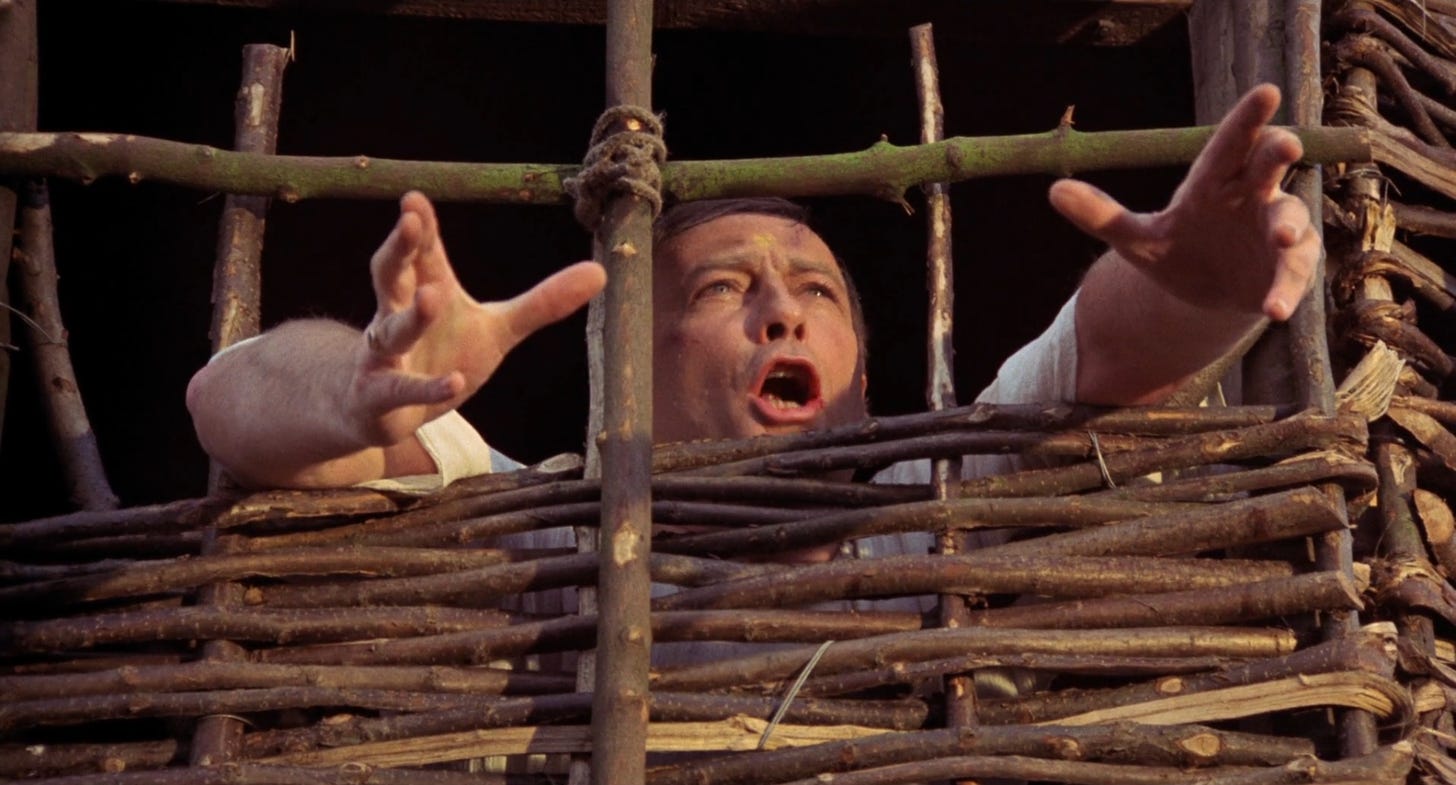Today being Beltane (Walpurgisnacht if you’re nasty), the right and good thing to do is watch The Wicker Man, set something on fire, and then jump through it. Or is it? I think about this every time I watch the movie and I’ve never really had anyone to properly hash this out with because all my friends are weirdos and an opposing viewpoint is hard to come by. I’m a well-known face in the crowd among enthusiasts and students of the occult, if you don’t already know this. I publish prolifically on the topic of Western Esotericism. So, the problem that I have when I watch The Wicker Man is that I find myself identifying very closely with the people of Summerisle even though they lock a man up in the titular Wicker Man and set him on fire, all the while swaying and singing gaily around the pyre as he calls out to God for deliverance.
I do believe that I am objectively on the wrong side of the movie. Or, at the very least, when the third act turn drops, I’m taking away the wrong message when I ought to be re-assessing my opinions about the people of Summerisle. I felt the same way when watching Midsommar, a film that I now consider to be a gratuitous ripoff of this one. But upon arrival at Midsommar’s conclusion, the only takeaway I left with was that I think that I could be perfectly happy living in Hårga, a place what’s ways and traditions is maintained with a deadly commitment and the occasional human sacrifice. I suppose that this deeply unpleasant truth about how I feel about The Wicker Man is the beating heart of horror at its center, and yet, it hardly bothers me at all.
This, I suppose, is the conflict that we’re supposed to struggle with. The people of Summerisle live in perfect harmony with their surroundings. It’s a place of plenty and as a result, The Wicker Man is the musical movie that you definitely weren’t expecting it to be. It’s a freezing splash of water over well-worn horror movie tropes. Most of the movie takes place in the daylight, as opposed to stormy nights where the beasts lurk beyond the frontier of shadows, revealed only in quick flashes of lightning. Its color palette is bright primary colors as opposed to secondaries of purple, orange, and green used so commonly in the classics. The Wicker Man is the absolute opposite of what you’re expecting and even classes up Christopher Lee into a new kind of horror movie monster that stands in direct opposition to everything you’ve seen him in before. There’s not a hint of Count Dracula in any of this business and given how even the most elderly residents of Summerisle are like children, it’s hard to argue with his philosophy even after it’s revealed that the cost of this carefree pagan lifestyle is an occasional sacrifice that promises more to the old gods than the usual cows and sheep.
I suspect that the people of Summerisle are meant to be seen as lunatics in the face of the ordered modern world. Their way of life is entirely alien to the Western lifestyle. Edward Woodward’s Sergeant Howie is representative of the editorial we. He comes in to their little microcosm from the greater outside world that we all exist in. Being a cop, he is a figure of authority from a culture that we recognize, bearing a spirituality that is far more common and accepted than the idiosyncratic and backwards paganism of Summerisle and yet he is juxtaposed against this alien culture by a body of people who work happily and love freely. Yet, they are the aliens in The Wicker Man. And lest you think that their folksy ways are unsophisticated, Lord Summerisle comes along to put that all to rest with a firm understanding of the geological conditions which make Summerisle such a fertile place, perfect for the cultivation of apples. When I watch the movie what I find in their hedonistic heathenism is an island full of kindred spirits. In this light, I very much get what Aleister Crowley was talking about when he said do what thou wilt shall be the whole of the law and I am here for it.
In the end, they’re all complicit in a terrible murder and the third-act twist is quite a doozy, definitely played in a fashion that puts the viewer off balance. Howie is a fucking asshole and all of his complaints sound like the sorts of things you expect from some shrieking maniac on Tiktok explaining why they won’t get vaccinated. He’s the least likable and relatable character in the movie and yet he’s the protagonist, occupying one of the most common movie good guy roles, the police officer. Unless I’m completely misunderstanding this movie’s thesis and the point has sailed softly over my head, Howie represents the invading outside force of colonization, which might explain why I feel nothing for him as he faces his final moments in the wicker man. Is it weird that if the cost of maintaining a low-stress community where people spend their days singing and dancing and their nights fucking in a field with a bunch of other locals is the grisly death of one miserable, judgmental dick, then I’ll be the first in line to grab a torch.
The thing that must be remembered is that The Wicker Man was made well within the confines of the era of British imperialism. The people of Summerisle are certainly portrayed as a people who are up to no good. The plan to convince Howie that a little girl is missing and likely dead is moving along smoothly, evolving over time, and the entire island is in on it. So at no point were these people ever intended to be portrayed to the moviegoing public as the misunderstood misfits with a slight murderous streak that I make them out to be. So it is that I return to my original thesis. Am I the one misinterpreting this movie? Given the current political climate in the United States, there must certainly be people out there who side with Sergeant Howie and hold fast to their sympathy with his plight from start to finish but I ask you, dead reader: It’s not just me, right?









Came here to say, it’s not just you. Digging in to watch The Wicker Man as we speak. Great piece!!!
It's not just you! I'm also on the side of the Summerisle folks. I gotta watch this again; it's been years.